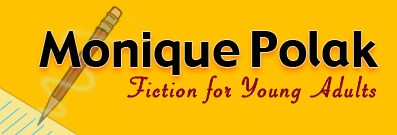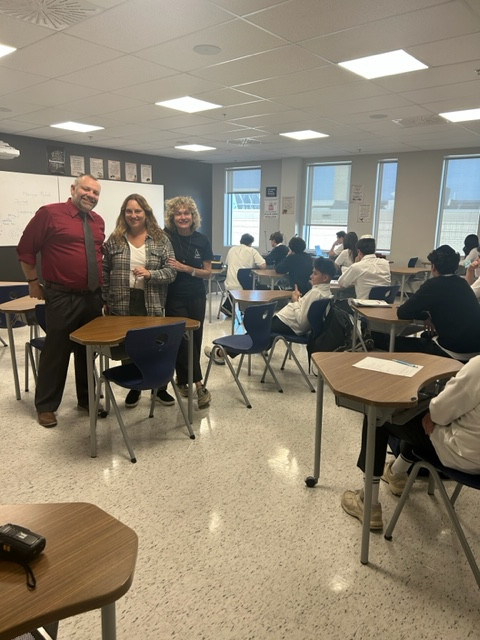



 Today was what I'll call the "soft launch" of an amazing new Blue Metropolis Literary Foundation educational program called Looking Back For a Better Future. Students from one class at five different schools across the province will be interviewing local seniors (usually at a seniors' residence or seniors' activity centre) to learn their stories of resilience -- how they got through a tough experience in their lives. The students will write journal entries following each visit and then -- get ready for the big reveal! -- Blue Met is making a documentary film about the project. The film will be screened at the 2024 Blue Metropolis Literary Festival.
Today was what I'll call the "soft launch" of an amazing new Blue Metropolis Literary Foundation educational program called Looking Back For a Better Future. Students from one class at five different schools across the province will be interviewing local seniors (usually at a seniors' residence or seniors' activity centre) to learn their stories of resilience -- how they got through a tough experience in their lives. The students will write journal entries following each visit and then -- get ready for the big reveal! -- Blue Met is making a documentary film about the project. The film will be screened at the 2024 Blue Metropolis Literary Festival.
Do you love it already?
Can you tell I do?
So this morning, I biked over to Herzliah High School, a private parochial school in Montreal taking part in the project. What's extra-special is the students will work with seniors who are regulars at the Cummings Centre -- in particular we are hoping to connect the kids with a group of Holocaust survivors who meet regularly at the Cummings Centre. And I'll be offering the seniors a journal writing workshop too!
At Herzliah, I met the principal, Mr. Grintuch; the excellently-named and oh-so-kind English teacher Flannery Brown; and Ms. Brown's DELICIOUS Grade 10 English class. Well, maybe delicious is not the first word Ms. Brown or even Mr. Grintuch would use to describe the class -- but hey, I really miss teenagers and I even enjoy when they are a touch resistant (even to a brilliant idea such as ours!!). The thing that's fun about students who are a bit resistant is there is room for GROWTH and CHANGE.
Anyway, I only had an hour and even I don't know how I packed so much in! We covered journal writing approaches and interviewing tips. And there was even time for stories.
So some lovely tidbits from our hour together: A student named Maya literally shone in the classroom because of her smile! I explained that just that smile will help get her GOLD in an interview. I also explained I had a hunch she would like the Cathartic style of journal writing -- that means releasing our emotions on the page. Because a project like this one will provoke lots of feelings -- some of them, as I warned the students, might be difficult ones like sadness and fear. But I reminded them they can expect positive feelings too -- like hope, and an appreciation for all they have, and the knowledge that people have gotten through some very very tough things -- and that they (the teens) can and WILL too!
James distinguished himself by showing interest from the start (he was making such good eye contact I made all the other kids do the same! I explained that to get a good story, they'll need to look into the eyes of the person they are interviewing (and nod the right amount). And I reminded them that some well-timed nods make teachers happy too!
Abigail had a great question -- she asked, "Do we also write about the seniors' emotions?" Brilliant! And so important. In fact, I had to add the point Abigail was making to MY list of interviewing tips. The seniors' emotional reactions can be one of the most telling and meaningful parts of the story. I'm sure the documentary filmmaker will agree!
When I told the kids the story behind my book The Brass Charm, I asked them, "What did my mum give me that was more important than the charm?" Now I have to tell you something else very cool. Mr. Grintuch, the principal, attended the entire workshop. Not a lot of principals do that. Only about three in my many years of doing writing workshops. (One of them is now my friend Roger Rampersad -- in case he's reading this!!). So like I told the kids, they need to extra-appreciate Mr. Grintuch, who is obviously, like all principals, busier than most humans we know!! By being with us, he demonstrated his own and the school's commitment to the project. James was first to answer my question. He said, "Time. Your mother gave you time." I said no, that wasn't the answer I was looking for. So Mr. Grintuch ANSWERED. He got the answer I wanted -- that she gave me HER STORY. But then, a moment later, I realized JAMES WAS RIGHT TOO. She did give me her time and I was lucky to have it.
And that shows us another interviewing skill -- one that James made me realize -- DON'T DISMISS AN ANSWER BECAUSE IT WASN'T THE ONE YOU WERE EXPECTING (I had actually demonstrated the mistake). When we agree to be interviewed, we give something very precious -- our time. And when these young people go to the Cummings Centre, they will be giving something very precious in return -- their time as they listen and respond to the gift of a story.
I also told the kids I don't love the word grownups -- though I use it myself. What I don't like is that it sounds as if we are finished growing. Even the elderly people these kids will be interviewing are still growing and it's altogether possible (and I think likely) that their meetings with these young people will contribute to that growth.
Mr. Grintuch said something beautiful on his way out. He said, "This is bashert." In Yiddish, bashert can mean a soulmate, especially a marriage partner; and it is also used to mean fate or destiny -- but in a good way!
And then lots of kids said thanks (always a bonus with teenagers!!) and a student Peter, whom I somehow hadn't even noticed during the workshop (old eyes), stopped to tell me, "Have a magical day." But you know what Peter? You guys already made it magical!
Here's to all of us -- and for how lucky we were to have had such a perfect soft launch! Thanks to Herzliah, Cummings Centre, Blue Met and of course, Canadian Heritage, the project funder. But mostly to the kids. For the magic.
For today's pic, it's Ms. Brown, Mr. Grintuch and me; we wanted to get just the kids' backs since they don't all have permission to be in a pic -- but I said give a thumbs up if you learned something or had fun. Even my bad eyes can spot one thumb. Pretty sure it belongs to James! I'll take it!!
When you subscribe to the blog, we will send you an e-mail when there are new updates on the site so you wouldn't miss them.
Comments